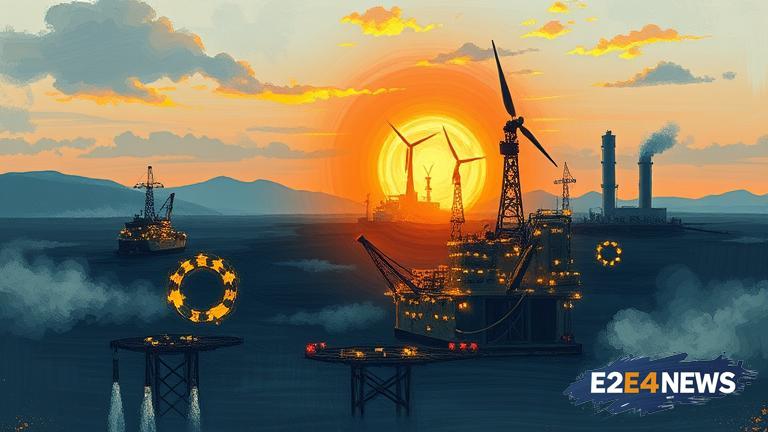The integration of artificial intelligence (AI) in the energy sector is revolutionizing the way energy is produced, distributed, and consumed in the United States. This AI-driven energy revolution has the potential to transform the global energy landscape, with significant implications for the environment, economy, and geopolitics. The use of AI in the energy sector is expected to increase efficiency, reduce costs, and enhance the reliability of energy systems. Moreover, AI can help optimize energy production, predict energy demand, and improve the maintenance of energy infrastructure. The adoption of AI in the energy sector is also expected to drive the growth of renewable energy sources, such as solar and wind power, which will help reduce greenhouse gas emissions and mitigate climate change. The global stakes of America’s AI-driven energy revolution are high, as it has the potential to disrupt traditional energy markets and create new opportunities for economic growth and development. The United States is well-positioned to lead the global energy transition, given its strong innovation ecosystem, highly developed infrastructure, and favorable business environment. However, other countries, such as China and the European Union, are also investing heavily in AI and renewable energy, and are likely to play a significant role in shaping the global energy landscape. The AI-driven energy revolution is also expected to have significant implications for global energy security, as it will reduce dependence on fossil fuels and enhance energy self-sufficiency. Furthermore, the use of AI in the energy sector will create new job opportunities and drive economic growth, particularly in the fields of data science, machine learning, and cybersecurity. The global energy transition will also require significant investment in infrastructure, including smart grids, energy storage systems, and electric vehicle charging stations. In addition, the AI-driven energy revolution will require a highly skilled workforce, with expertise in AI, data analytics, and energy systems. The United States government is also playing a crucial role in supporting the development of AI and renewable energy, through initiatives such as tax credits, grants, and research funding. Overall, America’s AI-driven energy revolution has the potential to transform the global energy landscape, drive economic growth, and mitigate climate change. The global community must work together to ensure a smooth transition to a low-carbon economy, and to address the challenges and opportunities presented by the AI-driven energy revolution. The future of energy production and consumption will be shaped by the innovative use of AI and other digital technologies, and it is essential that we prioritize sustainability, equity, and environmental stewardship in the transition to a new energy paradigm. The AI-driven energy revolution is a complex and multifaceted phenomenon, with far-reaching implications for the global economy, environment, and society. As the world transitions to a low-carbon economy, it is essential that we prioritize international cooperation, knowledge sharing, and collective action to address the challenges and opportunities presented by the AI-driven energy revolution.
